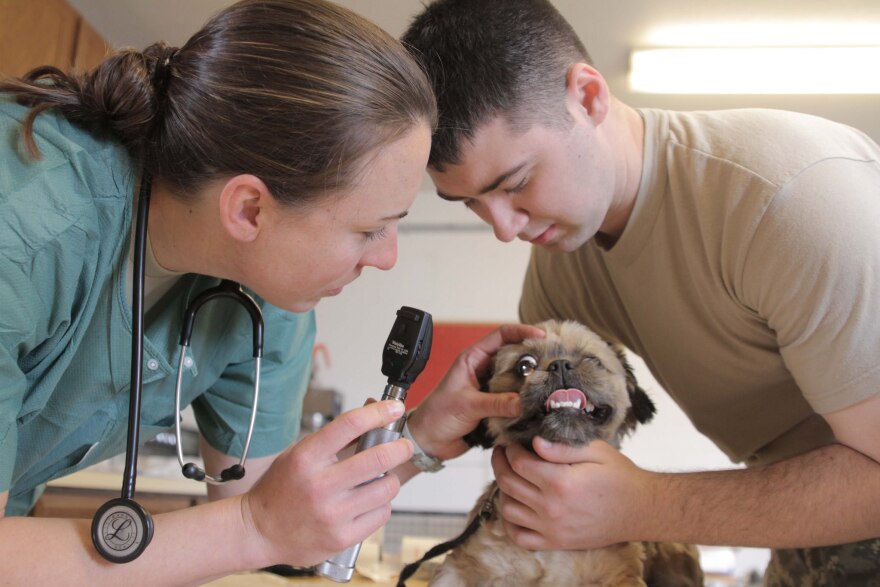In the wake of two dogs testing positive for rabies, the Colorado Department of Public Health and Environment wants pet owners and livestock owners to make sure their animals’ rabies shots are up to date.
The two dogs -- one in Yuma, one in Weld County -- had to be euthanized after showing symptoms of rabies. These were the first reported cases of rabies in Colorado dogs since 1974.
“When the family dog or cat gets rabies, there’s an increased risk of exposure to people,” said Jennifer House, a veterinarian with Colorado Public Health. “It’s critical to make sure all your pets are up to date on their vaccinations. This not only protects your pet, but keeps your whole family safe.”
House adds that the rabies vaccination is different than other shots: It has to be re-administered.
“So if your cat or dog has not seen a veterinarian in over three years, they are not currently vaccinated against rabies,” she says.
House also recommends livestock owners make sure their animals are up to date as well, noting it doesn’t take long for an infection to spread from a few animals to the entire herd.
Reported cases in wild animals usually increase when the weather warms up in the spring. Skunks and bats are the most common carriers. So far, Colorado has seen more cases of rabid skunks this year compared to 2016.
Here are some tips from the Colorado Department of Public Health and Environment to avoid rabies:
- Never touch or feed wild or stray animals. Don’t leave pet food outdoors. If you need help with a sick or orphaned animal, contact a wildlife rehabilitator. Contact a nearby animal shelter if you encounter a lost or stray dog or cat.
- Vaccinate your pets. Use a licensed veterinarian, and make sure you keep up with pets’ booster shots.
- Leash your dog. Protect dogs and wildlife by keeping your pet on a leash while walking or hiking.
- Keep cats and other pets inside at night. Keep dogs within your sight (in a fenced yard or on leash) when they are outside during the day.
- Call your veterinarian promptly if you believe your pet has been exposed to a wild animal.
- Vaccinate pastured animals annually. Have a licensed veterinarian administer an approved large-animal rabies vaccine.
- Bat-proof your home.
- Many healthy wild animals are normally afraid of humans. However, sick animals often do not run away when they’re near people.
- Wildlife with rabies often will act aggressively or violently approach people or pets.
- Some rabid animals are overly quiet and passive and want to hide. Don’t bother them.
- Rabid wildlife might have trouble walking, flying, eating or drinking.



